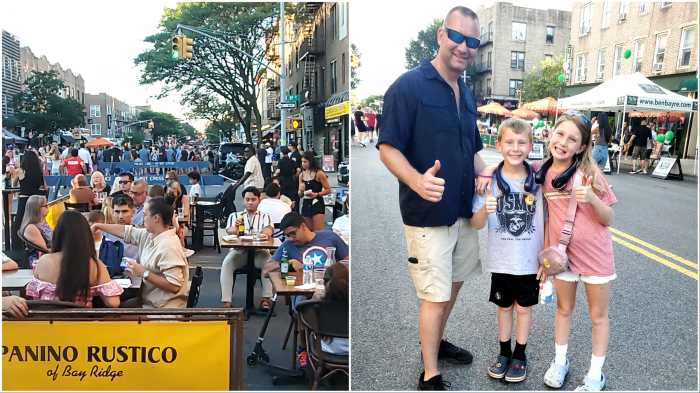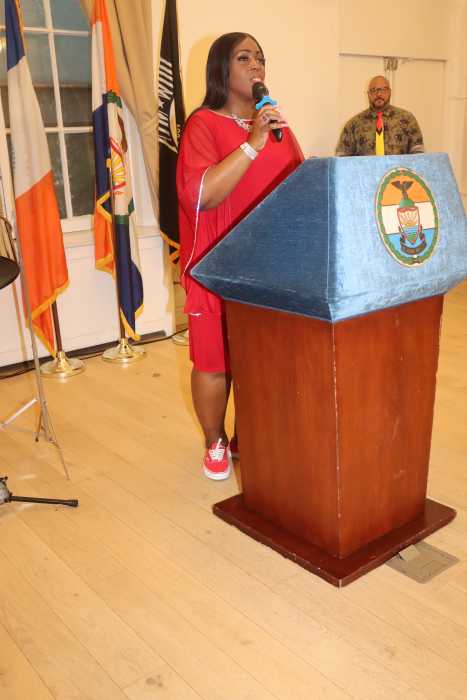Mayor voices support for gay marriage, but appeal decision stirs uproar
Mayor Michael R. Bloomberg arrived this past Saturday evening at the annual New York dinner for the Human Rights Campaign (HRC), the nation’s largest queer rights organization, ready to say something he had never before been willing to state unambiguously—that he supports the rights of same-sex couples to marry.
In delivering his remarks to the crowd of hundreds gathered in the grand ballroom of the Waldorf Astoria Hotel in midtown, the mayor at first sparked an enthusiastic standing ovation, only to be greeted moments later by widespread and boisterous boos, a Bronx cheer played over and over again on television news in the several days that followed.
The change in the mood in the ballroom was due to the way in which Bloomberg chose to lay his cards on the table regarding the previous day’s ruling, from Manhattan State Supreme Court Justice Doris Ling-Cohan, that the city clerk must issue marriage licenses to same-sex couples. Earlier on Saturday, in a press availability in Chinatown, the mayor, noting that Ling-Cohan’s order did not apply to the entire state and could be overturned by a higher New York court, announced his intention to appeal the ruling. It appeared as though many in the room, however, had not yet heard of Bloomberg’s statement, and the crowd was receptive to his early comments, which were very much in the vein that has earned him a national reputation as a gay-friendly Republican.
“I think people have the right to love, to live with and to marry whoever they want, regardless of their sexual orientation,” the mayor said in his opening.
The room erupted in thunderous applause and the majority of attendees rose to their feet. Two sentences later, Bloomberg began to let the other shoe drop.
“Yesterday’s decision was an important first step toward recognizing gay couples as equals before the law in civil marriages. But while the decision is certainly something to celebrate, we cannot pretend that it was a final answer,” he continued, before making an object lesson of last year’s experience in San Francisco, where gay marriages allowed by Mayor Gavin Newsom were later overturned in court. “I don’t want to see a repeat of what happened in California, where people were misled into thinking that licenses issued while the case was still going through the courts, would be valid regardless of a later decision. That caused a great deal of confusion and pain. People had their great joy snatched away from them very tragically. No one wants to see that happen here.”
Then a punch in the gut hit the crowd.
“That’s why the city must appeal the decision, not because I personally disagree with it, but because an appeal is the fastest way… to resolve this issue with finality, once and for all,” the mayor said, to a round of boos surprising in their ferocity coming from a crowd that had ponied up $350 each for dinner.
The mayor’s statement also included a standard argument made by those opposed to the gay marriage decision made in late 2003 by the Supreme Judicial Court in Massachusetts—that difficult issues like this should be settled in the legislature and not by judges. Yet, Bloomberg also suggested that he shared Ling-Cohan’s constitutional analysis, expressing his “hope [that] the Court of Appeals will embrace the goals laid out in yesterday’s decision.”
Significantly, that statement was not echoed in a Monday statement from Michael Cardozo, the city’s corporation counsel, who will challenge Ling-Cohan’s arguments on appeal.
Among those in the crowd, the friendliest response to the mayor’s position came from the out-of-towners, HRC itself.
In a press release handed out at the dinner, under the title “HRC Lauds Mayor Bloomberg’s Historic Support for Equal Marriage Rights,” Winnie Stachelberg, the public policy director just named to be vice president of the HRC Foundation, said, “Mayor Bloomberg demonstrates that the fight for marriage equality has no bounds of political party or ideology.” Only in the last of four paragraphs in the release did Seth Kilbourn, newly named to head up HRC’s Marriage Project, mention that the mayor was appealing the marriage ruling.
Asked to explain the positive spin put about a decision that clearly disappointed many gay New Yorkers, Stachelberg told Gay City News that in “putting the case on a fast track” for the state’s highest court, “the mayor believes that what he’s doing is in support of gay marriage.” She also mentioned that Bloomberg thought the experience faced by San Francisco couples whose marriages were annulled was “a travesty.”
Officials from the Empire State Pride Agenda were also on hand at the dinner, with a written statement saying, in part, “While we are disappointed the mayor has chosen to appeal the ruling, we are happy that he is taking it to the Court of Appeals, New York State’s highest court. We are glad to hear the mayor offer to work with elected officials in Albany to make equal access to marriage the law of New York State.”
Other gay leaders were less charitable toward the mayor, and even HRC.
“While I have lots of respect for the HRC, they fundamentally misunderstood what the mayor said today,” said Christine Quinn, a lesbian city councilwoman from Chelsea. “He was forced out of the closet today on his position on same-sex marriage.”
Tom Duane, a gay state senator, also from Chelsea, told Gay City News, “I just disagree with [HRC]. You can’t have it both ways. Either you are with us or against us.”
But not all gay people on hand at the Waldorf Saturday night agreed that marriage rights should even be a goal of the queer community. A group of picketers, numbering about 20 and affiliated with the ad hoc group Queer Fist that grew out of the Republican Convention protests last summer, assembled near the hotel’s Park Avenue entrance for several hours to voice complaints with the mainstreaming of the gay agenda which they believe HRC typifies. The fight for same-sex marriage was chief among their targets, as were the expense of the gala, the amount of money which they believe HRC spends unwisely and what they said was the group’s failure to advocate for basic social and economic justice issues.
“Housing, health care, education; marriage isn’t liberation,” was one of the group’s chants. Another was, “Social justice, not champagne; fuck the Human Rights Campaign.”
Larry Kramer, the playwright and longtime iconoclastic AIDS activist, was also on hand. While he supports the right of same-sex couples to marry legally, Kramer said that he worries that preoccupation with the issue is blinding the community to other greater challenges.
“Our rights are being taken away left, right and center,” he said. “Bush is putting in all people who hate us. People don’t realize how much we are hated.”
HRC, he said, “is going down the tubes. They have been for a long time.”
Arguing that he is seeing increased drug failures on the part of people living with HIV, Kramer bemoaned the death of AIDS activism and then took aim at HRC’s plans to honor Pfizer, the pharmaceutical giant, at Saturday’s dinner.
“How dare they give an award to Pfizer?” Kramer asked. “That’s like giving an award to Hitler.”
gaycitynews.com


































